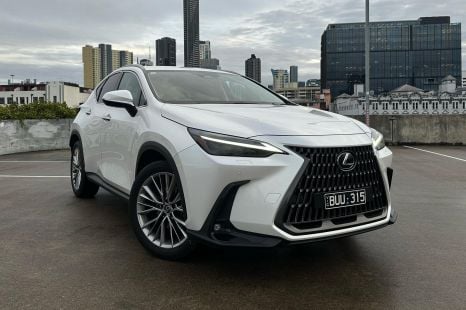

William Stopford
3 Days Ago
Porsche is sending off the Boxster, as it gears up to welcome its EV replacement to Australia. Is the Style Edition a fitting farewell?
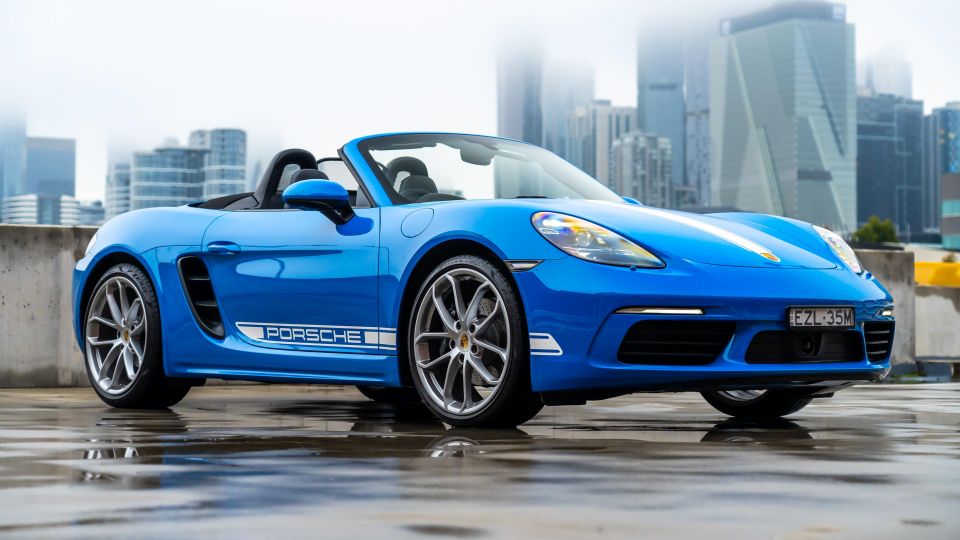


Quickly see how this car stacks up against its competition. Select any benchmark to see more details.
Take advantage of Australia's BIGGEST new car website to find a great deal on a Porsche 718.
The Porsche Boxster as we know it is on its last legs.

Orders for the current 718 Boxster (and its Cayman coupe cousin) will close in the middle of 2024, and its replacement will be electric. Porsche has committed to keeping petrol power alive in some form for the 911; it doesn’t appear to be bothering for the 718 twins.
It’s often made fun of for being a mid-life crisis car, or a poser’s Porsche, but the Boxster was the car that saved the brand from unprofitability in the 1990s, as bigger carmakers circled in search of a takeover.
Back then, a lot of parts were shared between the Boxster and 911 to save money, and to give the new roadster some much-needed credibility with buyers.

It’s a different story now. Not only do the pair look different, with very different model cycles, a chunk of the Boxster range in 2016 traded its sonorous six-cylinder engine for a turbocharged four-cylinder… complete with a soundtrack that’d make anyone who’s owned a WRX STI feel right at home.
Porsche isn’t letting the Boxster go quietly into the night. At the top end, it’s slotted a version of the 911 GT3 4.0-litre engine into the Spyder RS. At the bottom end, it’s created a selection of Style Edition specials like the car on test here.
There’s no doubt it’s a good looking take on the formula, but the 2.0-litre engine doesn’t necessarily make for the stylish send off the Boxster deserves.
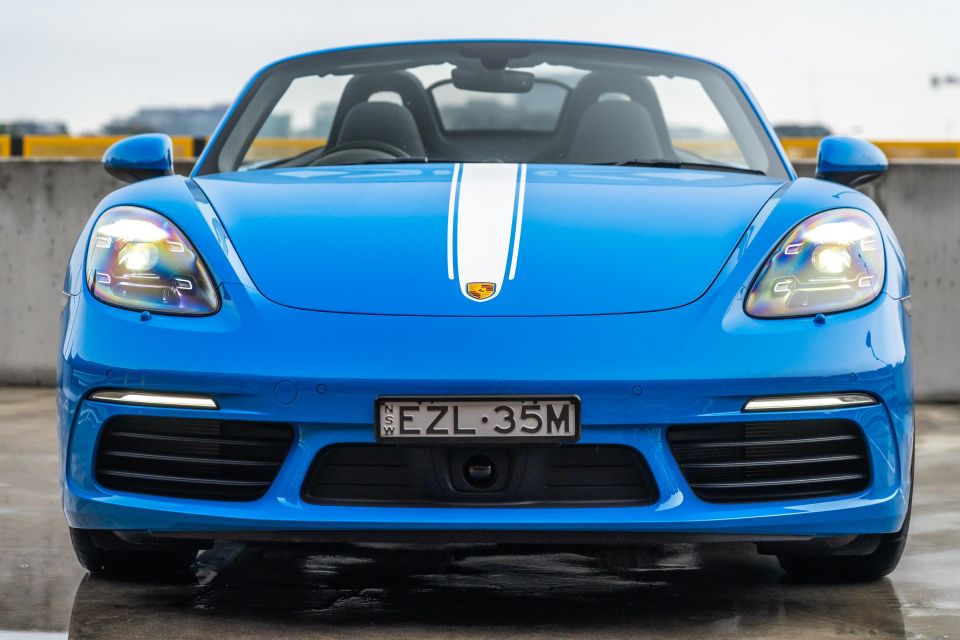
All prices exclude on-road costs.
To see how the 718 Boxster stacks up against its sports car rivals, use our comparison tool.
Porsche has come a long way with its interior technology since this 718 generation debuted.
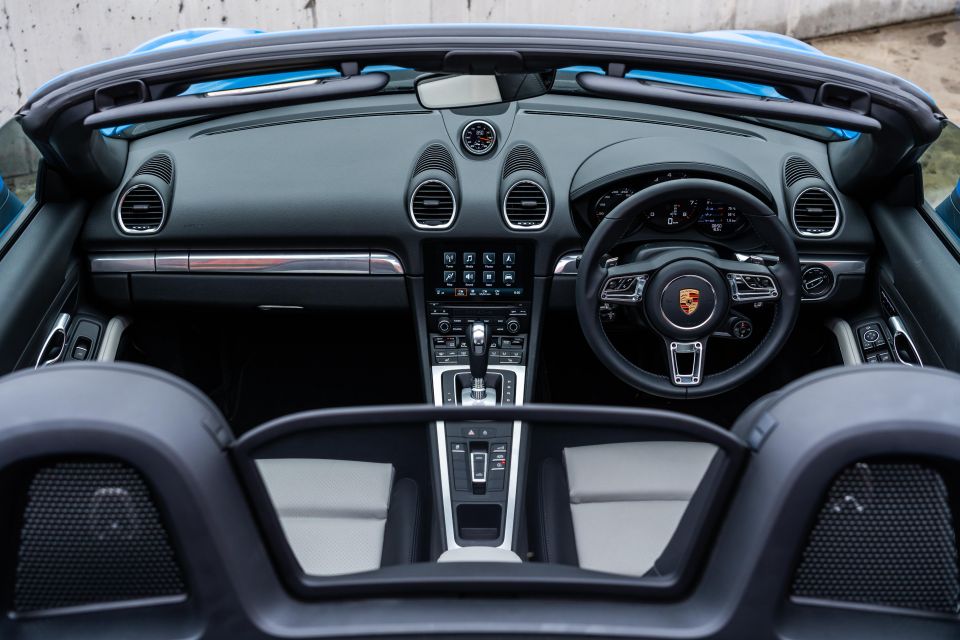
Hopping into the 718 after looking at a 911, let alone the new Cayenne, is like stepping back in time. But sometimes the old ways are good, and there’s a lot to like here.
The driving position is excellent, with enough space even for lanky drivers to get comfortable, and even so late in its life the 718 doesn’t feel particularly tired inside.
Everything you poke or prod feels high quality, and the pop-out cupholders behind a piece of trim on the passenger side of the dashboard are still a clever solution to the lack of space in most sports cars. You’ll notice the lack of USB ports relative to most new cars, though.
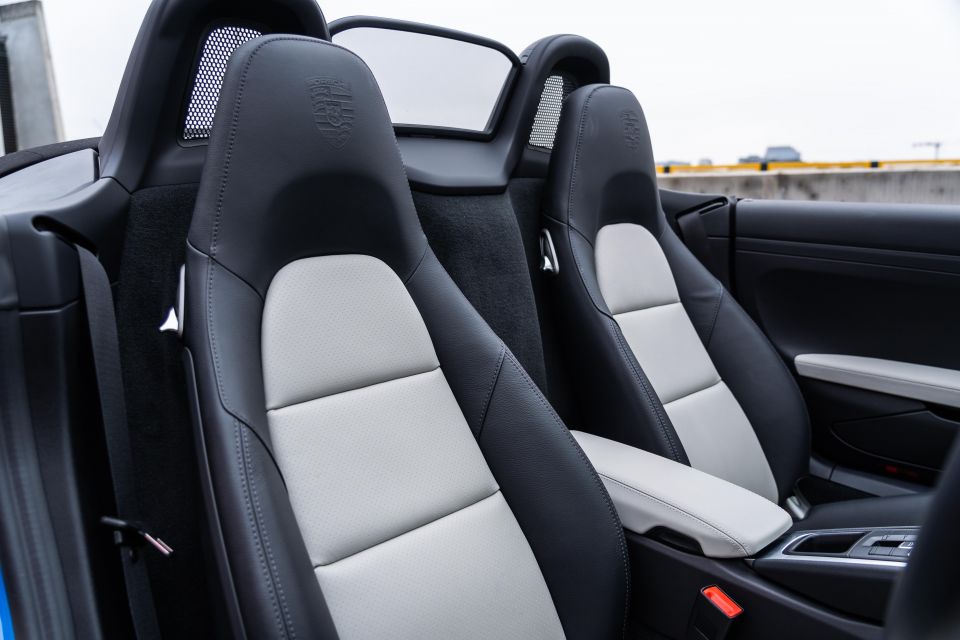
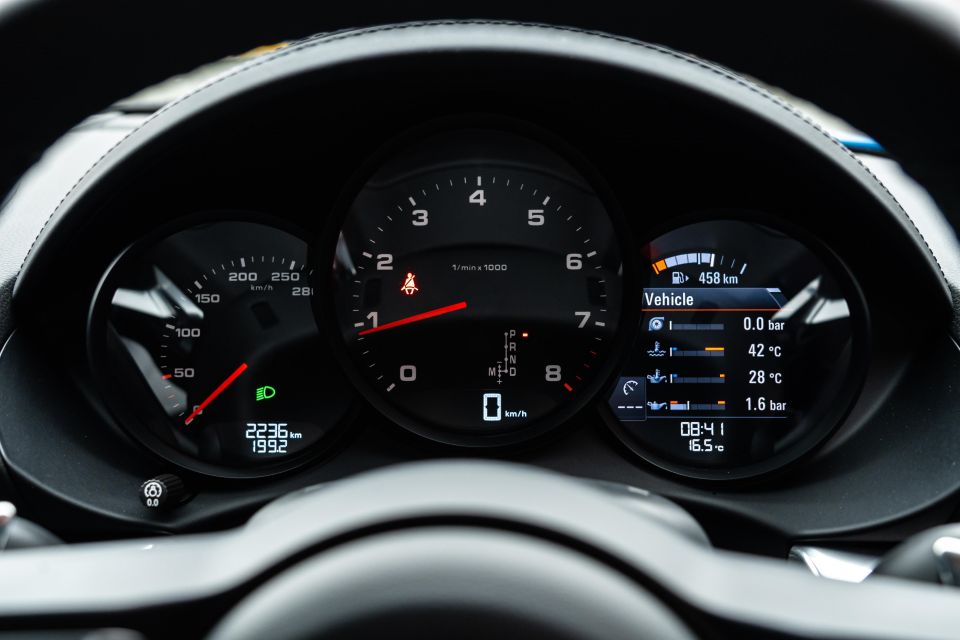
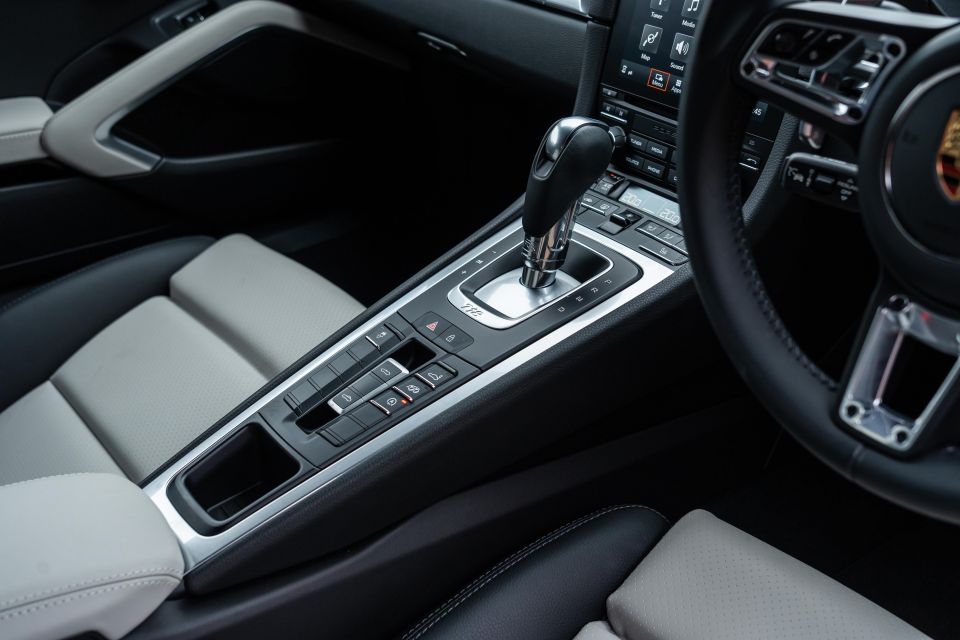
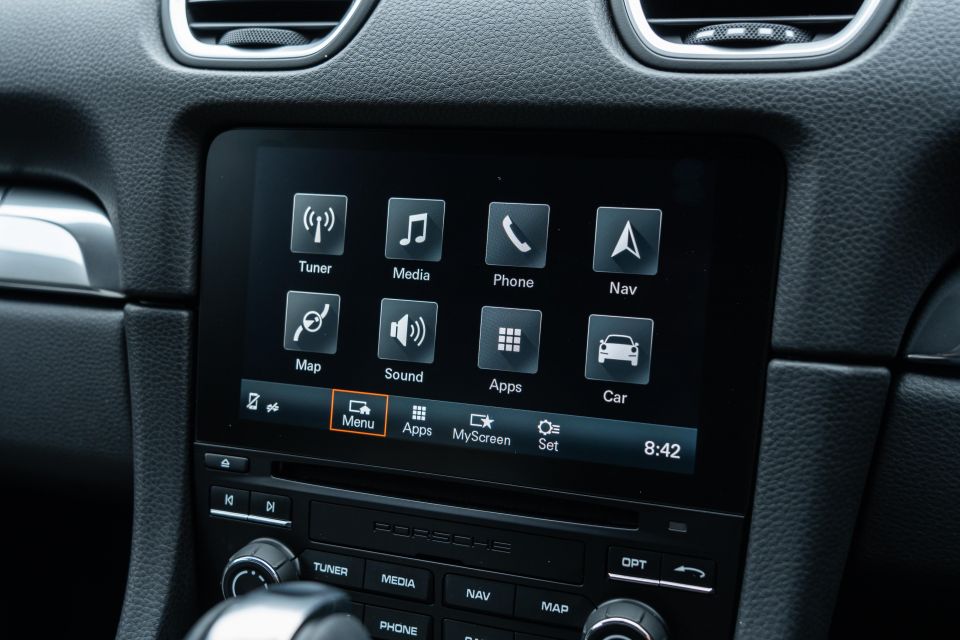
The pair of analogue dials and small screen in front of the driver will make anyone who’s driven an older Porsche feel right at home, and all the information you need is right there at a glance.
It’s a similar story with the central touchscreen; it’s not nearly as flashy as the unit in the new 911 or Cayenne, but it’s dead easy to use and only really wants for wireless Apple CarPlay. I liked the system when it featured in the Macan and the last 911, and I still like it here.
With the roof up, there’s plenty of headroom for tall drivers. Drop the top using the switch on the transmission tunnel (operable up to 48km/h) and you get a lot more… without too much in the way of wind noise at regular commuting speeds.

There’s a wind deflector between the seats that can be removed, but there’s no real reason to.
As for boot space? Along with room for soft bags or coats behind the seats, you get two boots in the 718.
The space up front holds 150 litres, and is perfect for soft overnight bags. The space behind the engine holds an additional 122 litres, for a combined 277 litres.
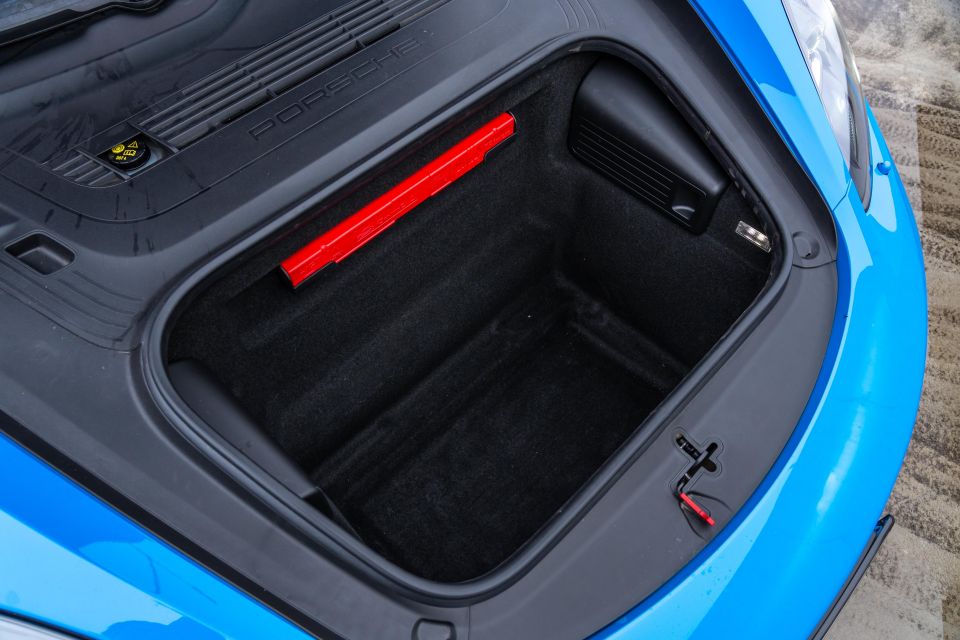
| Engine | 2.0L four-cylinder turbo |
|---|---|
| Power | 220kW (6500rpm) |
| Torque | 380Nm (1950-4500rpm) |
| Transmission | 7-speed dual-clutch auto |
| Driven Wheels | Rear-wheel drive |
| Weight | 1365kg (kerb) |
| Fuel economy (claimed) | 7.0L/100km |
| Fuel economy (as tested) | 10.5L/100km |
| Fuel tank | 64L |
| Octane rating | 98 RON |
The 2.0-litre engine doesn’t give you a satisfying snarl when you turn the key, instead bursting to life with gruff, boxer rumble. It’s not a particularly pleasant sound, especially when you consider how good the 4.0-litre six in the GTS is.
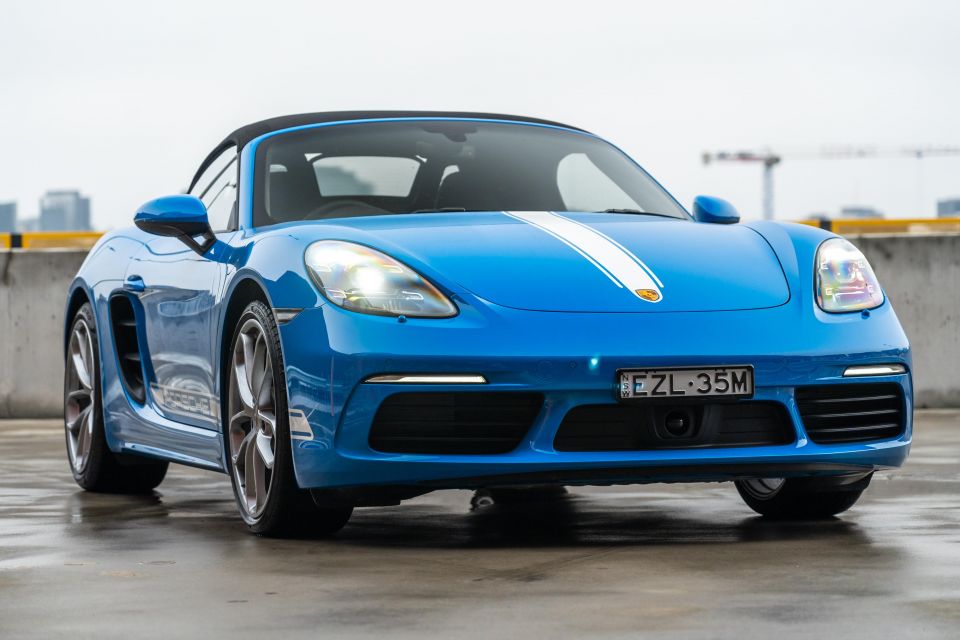
Unfortunately, it doesn’t really get any better when you’re on the move. It’s very quiet with the active sports exhaust in its default mode, and flicking it into loud mode doesn’t free things up nearly as much as you’d hope.
It’s also not what you’d call a particularly nice noise at any point, even when you’re flogging the car with the roof down. There’s more to a sports car than how it sounds, but it’s amazing how removing the spine-tingling way a Porsche flat six zings to redline makes the whole 718 Boxster experience feel a bit… flat.
It’s a shame, because this is still an incredibly talented sports car. The 911 will always be the Porsche, but there’s something special about the way the mid-engined Boxster and Cayman drive.
After driving so many cars with numb steering, hopping into the Boxster and feeling the thin-rimmed steering wheel tug from left-to-right in your hands with cambers in the road is a refreshing change.

There’s no rear-wheel steering here, nor active engine mounts, or adaptive dampers, or variable-ratio steering, or any of the other (incredibly effective) complications that have rolled out to make the 911 handle like a smaller, lighter car – because they just aren’t necessary.
It’s incredibly balanced, so you can barrel into a corner and make small adjustments with the throttle and steering to tidy up your line, and there’s none of the mid-engine edginess you might expect. This is a sports car that brings you along for the ride.
The engine offers plenty of punch low down in the rev range once you’ve cleared an initial hint of turbo lag, and does a solid job squeezing you back in the seat on the way round to the redline. It doesn’t really zip through the last few thousand revs like naturally-aspirated Porsches; although, the trade-off is more shove from low speeds.
In the context of hot hatches like the AMG A45 S and Audi RS3 it’s not what you’d call particularly fast, but the chassis and steering mean you’re able to focus on delicately carrying speed rather than teleporting down straights, throwing an anchor out, tiptoeing through corners, and then repeating the process.
Porsche’s dual-clutch transmissions are unmatched, and allow you to fully unlock the engine’s potential.

It’s preternaturally fast in Sport Plus, shifting down one, two, three gears so quickly and smoothly it’s genuinely remarkable, and the way it just seems to know what gear you need and when is unlike anything else out there.
The response to the metal paddles is instantaneous, and provided what you want to do isn’t going to send valves exploding out the top of the engine, the car will actually let you take control.
Ride quality is surprisingly good for a small car riding on big wheels and liquorice thin tyres. On suburban roads it does a good job keeping potholes and pimply sections out, and on bumpy back roads there’s enough compliance in it to shrug off awkward mid-corner bumps without throwing you off line.
You could genuinely daily drive the Boxster without making too many sacrifices.


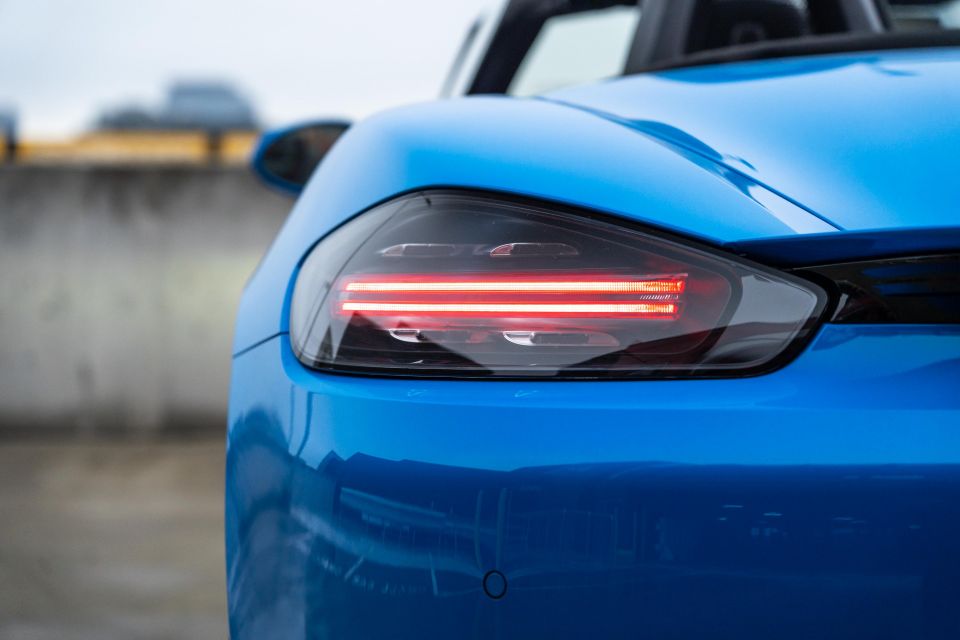

Standard equipment on Style Edition models includes:
The Porsche 718 line-up hasn’t been crash tested by an NCAP body, nor will it be this late in its life.

It features six airbags as standard, along with blind-spot monitoring, adaptive cruise control, and parking sensors with a reversing camera.
Porsche offers a three-year, unlimited-kilometre warranty in Australia, despite most luxury rivals having moved to five years of coverage.

Find out more about the car
Scheduled servicing is required every 12 months or 15,000 kilometres. Porsche Australia says service pricing “varies from state to state due to different labour rates at Official Porsche Centres”.
You can get an indication of service pricing through your local Porsche Centre.
The 718 Boxster is a still a sweet car to drive.
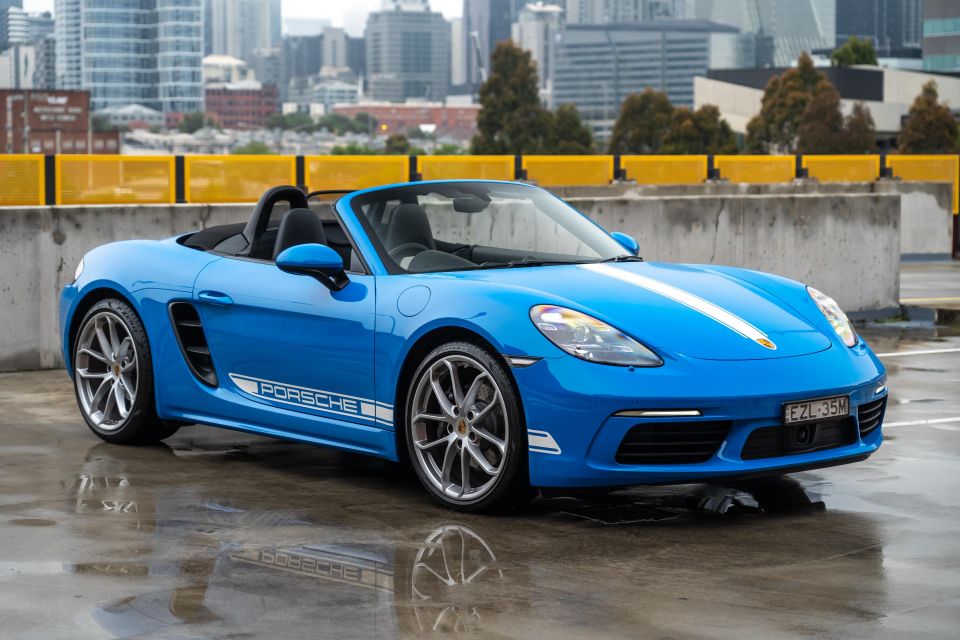
It’s also practical in the context of selfish two-seat sports cars, has a comfortable enough interior that you could drive it every day, and is quick enough to put a smile on your face.
But the Style Edition isn’t the Boxster worth buying before it’s replaced by an electric alternative, and it’s all down to its engine.
Despite the surprising levels of practicality, a huge part of the Boxster’s appeal lies in the way it makes you feel – and it doesn’t make you feel good enough, enough of the time without the snarl of the 4.0-litre naturally aspirated engine offered in the GTS, Spyder, and Spyder RS.
If you’re trying to snag one of the last mid-engine petrol Porsche sports cars before they die out entirely in favour of swift but silent electric power, you might as well do it properly and buy the one that truly sends the format off in style.
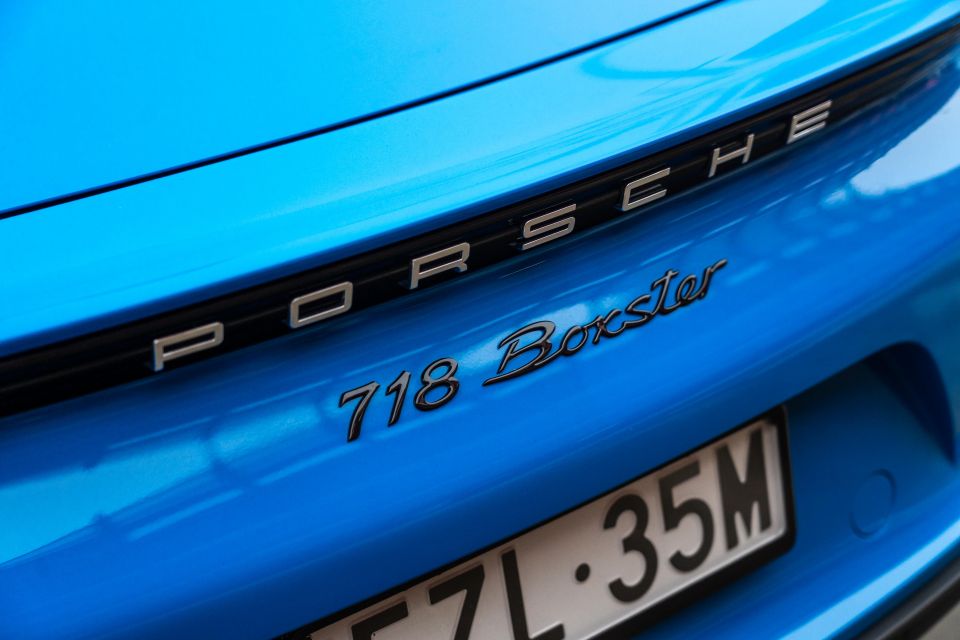
Click an image for the full gallery
BUY: Porsche 718 MORE: Everything Porsche 718
Take advantage of Australia's BIGGEST new car website to find a great deal on a Porsche 718.
Scott Collie is an automotive journalist based in Melbourne, Australia. Scott studied journalism at RMIT University and, after a lifelong obsession with everything automotive, started covering the car industry shortly afterwards. He has a passion for travel, and is an avid Melbourne Demons supporter.


William Stopford
3 Days Ago
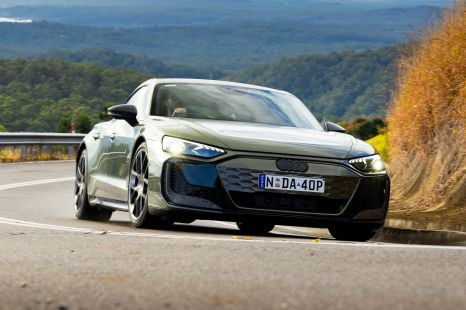

James Wong
3 Days Ago
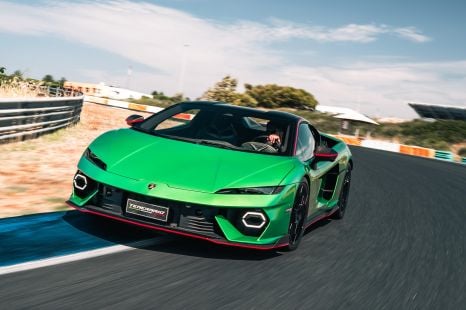

Alborz Fallah
2 Days Ago
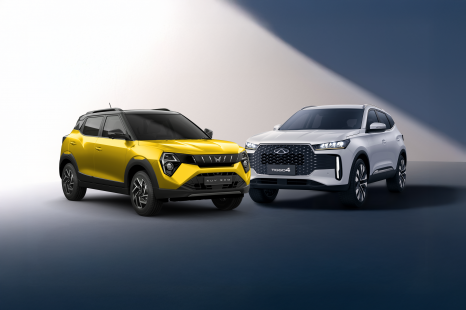

Andrew Maclean
1 Day Ago
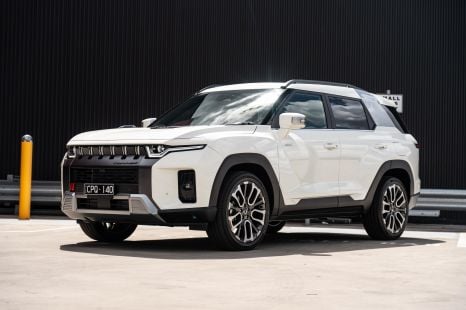

Max Davies
1 Day Ago
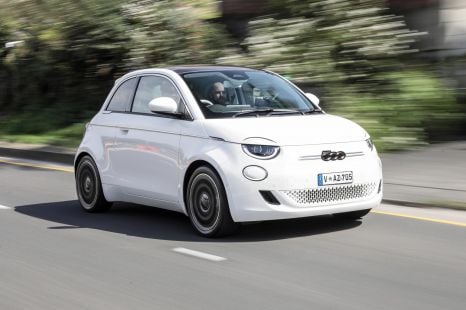

Damion Smy
1 Day Ago